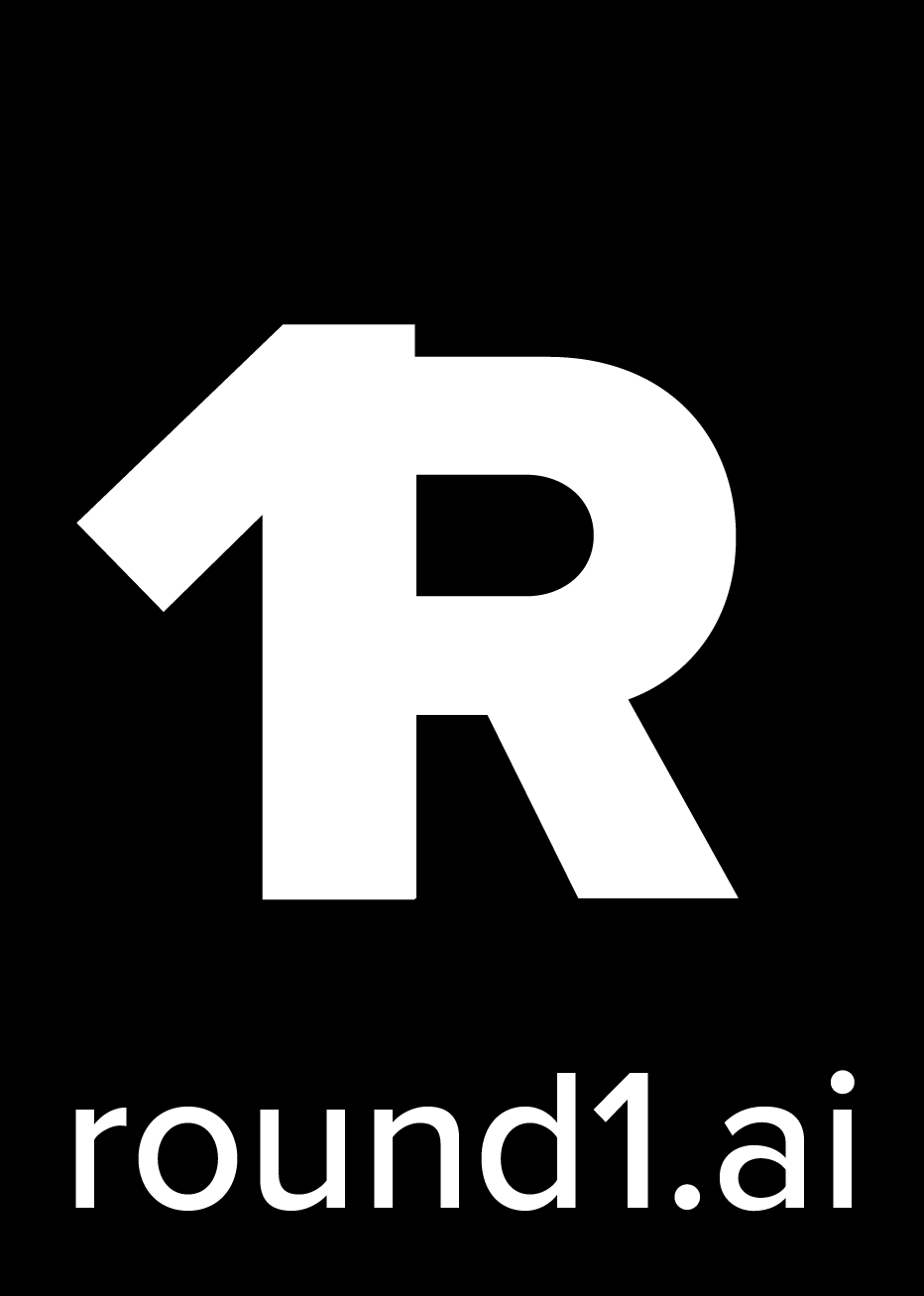Are you responsible for interviewing & hiring at your company?
Round1.ai will give you resume screening superpowers. Learn more.

In this post:
- Understanding the Role of a CRO (Chief Revenue Officer)
- Key Components of a Great CRO (Chief Revenue Officer) Job Description
- Sample Job Description for the CRO (Chief Revenue Officer) Position
- Where to Post your CRO (Chief Revenue Officer) Job Description
- How to Attract the Best CRO (Chief Revenue Officer) Candidates
- How to use Round1.ai to Screen CRO (Chief Revenue Officer) Candidates
CRO (Chief Revenue Officer) Job Description Template for Recruiters | Round1.ai
In today’s competitive business landscape, organizations are constantly seeking ways to optimize their revenue generation strategies. One key role that plays a pivotal role in achieving this goal is the Chief Revenue Officer (CRO). As the title suggests, a CRO is responsible for overseeing and maximizing an organization’s revenue streams across all departments. In this article, we will delve into the intricacies of the CRO role, discuss the key components of a great CRO job description, provide a sample job description, highlight the best platforms to post your CRO job description, and explore how Round1.ai can assist in screening CRO candidates effectively.
Understanding the Role of a CRO (Chief Revenue Officer)
Before we dive into the specifics of a CRO job description, it is important to have a clear understanding of the role itself. The CRO is a high-level executive who is primarily responsible for driving the organization’s revenue growth. Unlike other C-suite positions, such as the CEO or CFO, the CRO’s primary focus lies in aligning sales, marketing, and customer success teams to create a seamless revenue generation strategy.
A successful CRO possesses a deep understanding of the organization’s target market, customer needs, and competition. They collaborate closely with other departments to identify new revenue opportunities and develop innovative strategies to attain revenue goals. Moreover, a CRO is tasked with fostering a revenue-focused culture within the organization, ensuring that all employees are aligned with the overarching revenue objectives.
One of the key responsibilities of a CRO is to analyze market trends and customer behavior to identify potential revenue streams. By staying up-to-date with industry developments and consumer preferences, the CRO can proactively adapt the organization’s revenue generation strategies to capitalize on emerging opportunities. This requires a combination of data analysis, market research, and a keen understanding of the organization’s competitive landscape.
In addition to revenue growth, a CRO also plays a crucial role in optimizing the organization’s sales processes and improving overall efficiency. They work closely with sales teams to develop and implement effective sales strategies, streamline sales operations, and enhance the customer experience. By leveraging technology and data-driven insights, the CRO can identify areas for improvement, implement sales enablement tools, and establish performance metrics to drive sales effectiveness and productivity.
Key Components of a Great CRO (Chief Revenue Officer) Job Description
When crafting a CRO job description, recruiters must include key components that accurately reflect the responsibilities, qualifications, and expectations of the role. A comprehensive CRO job description will encompass sections such as job overview, key responsibilities, qualifications, and desired skills. Each of these sections serves a specific purpose in attracting qualified candidates and setting clear expectations for the role.
The job overview section should provide a concise summary of the CRO role within the organization. It should highlight the primary objectives of the position and the departments the CRO will collaborate with. This section acts as an introduction and entices potential candidates to continue reading the job description.
The key responsibilities section is crucial in outlining the core duties that the CRO will be accountable for. This should include tasks such as developing and implementing the organization’s overall revenue strategy, aligning the sales and marketing teams, and analyzing market trends to identify new revenue streams.
In the qualifications section, it is important to outline the necessary educational and professional background required for the role. This may include a Bachelor’s or Master’s degree in a relevant field, significant experience in revenue leadership positions, and a proven track record of achieving revenue targets.
Lastly, the desired skills section should list the personal attributes and abilities that would make a candidate successful in the role. This may include exceptional leadership and communication skills, strong analytical capabilities, strategic thinking, and a results-oriented mindset.
In addition to these key components, a great CRO job description should also include information about the company culture and values. This helps potential candidates understand the organization’s mission and whether they align with its core principles. It can also attract candidates who are not only qualified for the role but also share the same values as the company.
Furthermore, it is beneficial to include information about the reporting structure and the CRO’s position within the company hierarchy. This provides clarity on who the CRO will report to and who they will be managing or collaborating with. It helps candidates understand the level of responsibility and authority they will have in the role.
Sample Job Description for the CRO (Chief Revenue Officer) Position
Here is a sample job description to serve as a starting point when crafting your own CRO job description:
Job Overview:
The Chief Revenue Officer (CRO) is a key executive role responsible for developing and executing the organization’s revenue growth strategies. As a CRO, you will work closely with sales, marketing, and customer success teams to align revenue objectives and drive exceptional performance.
Key Responsibilities:
- Develop and implement the organization’s revenue strategy.
- Lead and align sales, marketing, and customer success teams towards revenue goals.
- Analyze market trends and identify new revenue streams.
- Collaborate with cross-functional teams to optimize sales and marketing processes.
- Monitor and analyze key performance indicators to measure revenue growth.
Qualifications:
- Bachelor’s or Master’s degree in Business Administration or related field.
- Minimum of 10 years of experience in revenue leadership positions.
- Demonstrated success in achieving revenue targets.
- Strong understanding of market dynamics and customer needs.
Desired Skills:
- Exceptional leadership and communication skills.
- Proven ability to develop and execute successful revenue strategies.
- Analytical mindset with strong problem-solving abilities.
- Strategic thinker with a results-oriented mindset.
Additional Information:
The Chief Revenue Officer (CRO) is a highly strategic role that requires a deep understanding of the organization’s industry and competitive landscape. The CRO must stay up-to-date with market trends, emerging technologies, and customer preferences to identify new opportunities for revenue growth. Additionally, the CRO should have experience in developing and implementing pricing strategies, as well as managing partnerships and alliances to drive revenue.
Benefits:
- Competitive salary and performance-based bonuses.
- Comprehensive health, dental, and vision insurance.
- 401(k) retirement plan with company match.
- Paid time off and flexible work hours.
- Opportunities for professional development and career advancement.
Where to Post your CRO (Chief Revenue Officer) Job Description
Once you have crafted an enticing CRO job description, the next step is determining the best platforms to post it. This will ensure your job description reaches the right audience and attracts highly qualified candidates. In addition to popular general job posting platforms, such as LinkedIn, Indeed, and Glassdoor, consider leveraging industry-specific platforms and professional networks. These platforms often attract candidates with specialized skills and experience in revenue optimization, increasing the chances of finding the ideal CRO for your organization.
Another effective platform for posting your CRO job description is industry conferences and events. These gatherings bring together professionals from your specific industry, providing an opportunity to directly connect with potential candidates who are actively engaged in revenue optimization. By attending or sponsoring relevant conferences and events, you can showcase your job opening and network with individuals who have the expertise and experience you are seeking in a Chief Revenue Officer.
How to Attract the Best CRO (Chief Revenue Officer) Candidates
Attracting the best CRO candidates requires a targeted approach that showcases the unique aspects of your organization and the opportunities it presents. A few strategies to consider include:
1. Clearly articulate the organization’s vision, values, and potential for growth.
2. Highlight any unique perks or benefits that set your organization apart from competitors.
3. Emphasize the impact that the CRO will have on revenue growth and the opportunity to shape the organization’s future.
4. Showcase the support and resources available for the CRO to succeed in their role.
5. Utilize employee testimonials to provide insights into the company culture and environment.
By following these strategies, you can attract highly qualified candidates who are aligned with your organization’s goals and values.
6. Develop a comprehensive job description that clearly outlines the responsibilities, qualifications, and expectations for the CRO role.
7. Leverage your professional network and industry connections to spread the word about the CRO position and attract top talent.
8. Offer competitive compensation packages that reflect the value and importance of the CRO position within your organization.
9. Provide opportunities for professional development and growth, demonstrating your commitment to investing in the CRO’s success.
10. Foster a positive and inclusive work environment that values diversity and promotes collaboration, as this will attract candidates who thrive in such environments.
By incorporating these additional strategies, you can further enhance your ability to attract the best CRO candidates and build a strong leadership team for your organization.
How to use Round1.ai to Screen CRO (Chief Revenue Officer) Candidates
Round1.ai is an advanced AI-powered platform that can greatly simplify and enhance your candidate screening process for the CRO position. The platform utilizes natural language processing and machine learning algorithms to analyze candidate resumes and assess their suitability for the role. Round1.ai can automatically identify key qualifications, skills, and experience from resumes, saving recruiters valuable time and effort.
Additionally, Round1.ai offers behavioral insights based on candidates’ social media presence, providing a more comprehensive understanding of their professional reputation and online persona. This data-driven approach empowers recruiters to make more informed decisions when shortlisting CRO candidates for further evaluation.
In conclusion, crafting a comprehensive CRO job description is an essential step in attracting the best candidates for this crucial leadership role. By understanding the role of a CRO, including key components in the job description, utilizing appropriate platforms for posting, and leveraging AI-powered tools like Round1.ai for screening, recruiters can successfully identify exceptional CRO candidates who will drive revenue growth and success for their organizations.
One of the key advantages of using Round1.ai for screening CRO candidates is its ability to analyze not just the content of resumes, but also the formatting and structure. The platform can identify well-organized and visually appealing resumes, which can be indicative of a candidate’s attention to detail and professionalism. This feature helps recruiters quickly identify candidates who have put effort into presenting their qualifications effectively.
Furthermore, Round1.ai can provide recruiters with insights into a candidate’s industry knowledge and expertise. By analyzing the keywords and industry-specific terminology used in resumes, the platform can determine the depth of a candidate’s understanding of the revenue generation process and their ability to navigate industry challenges. This information can be invaluable in assessing a candidate’s potential to drive revenue growth for the organization.



